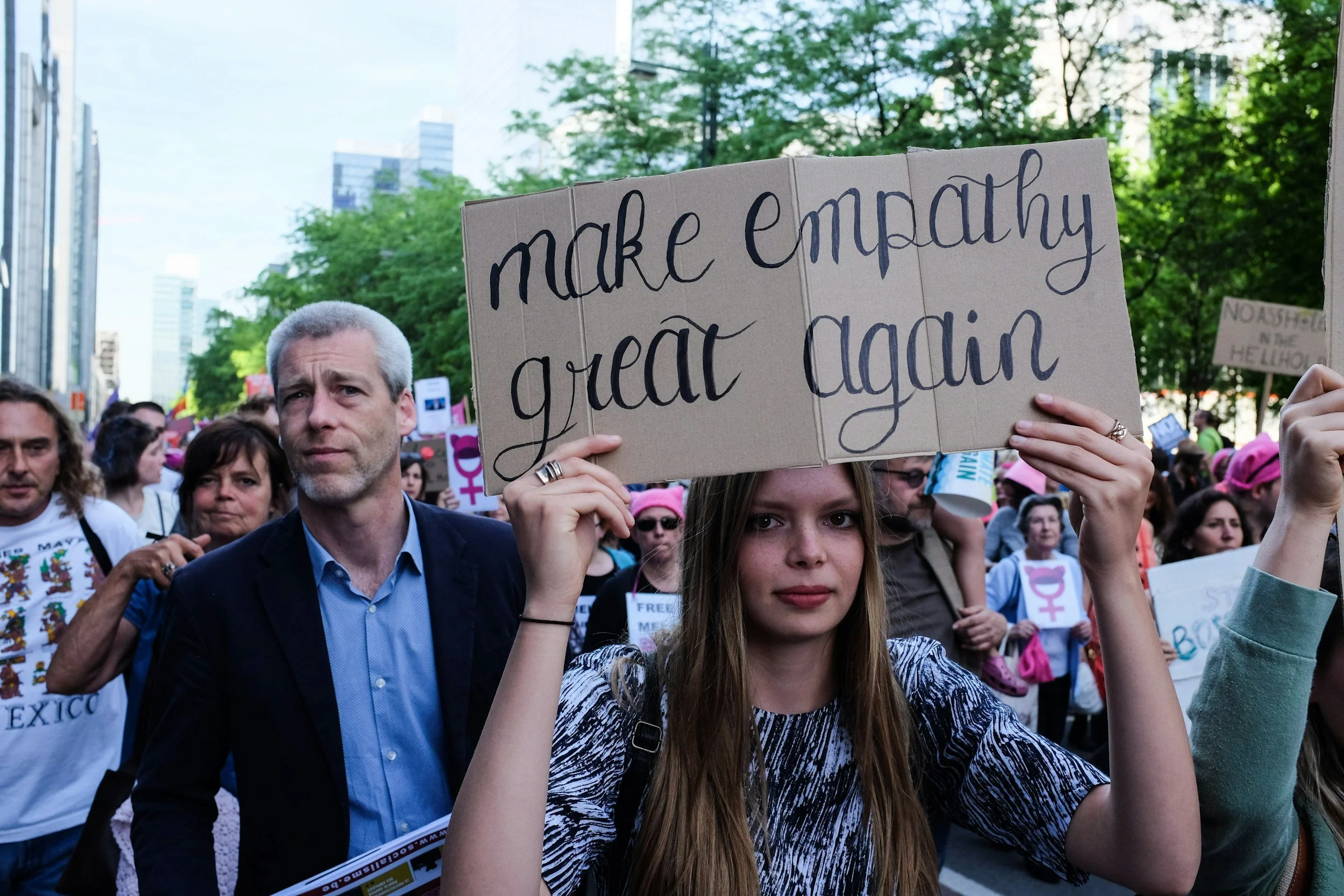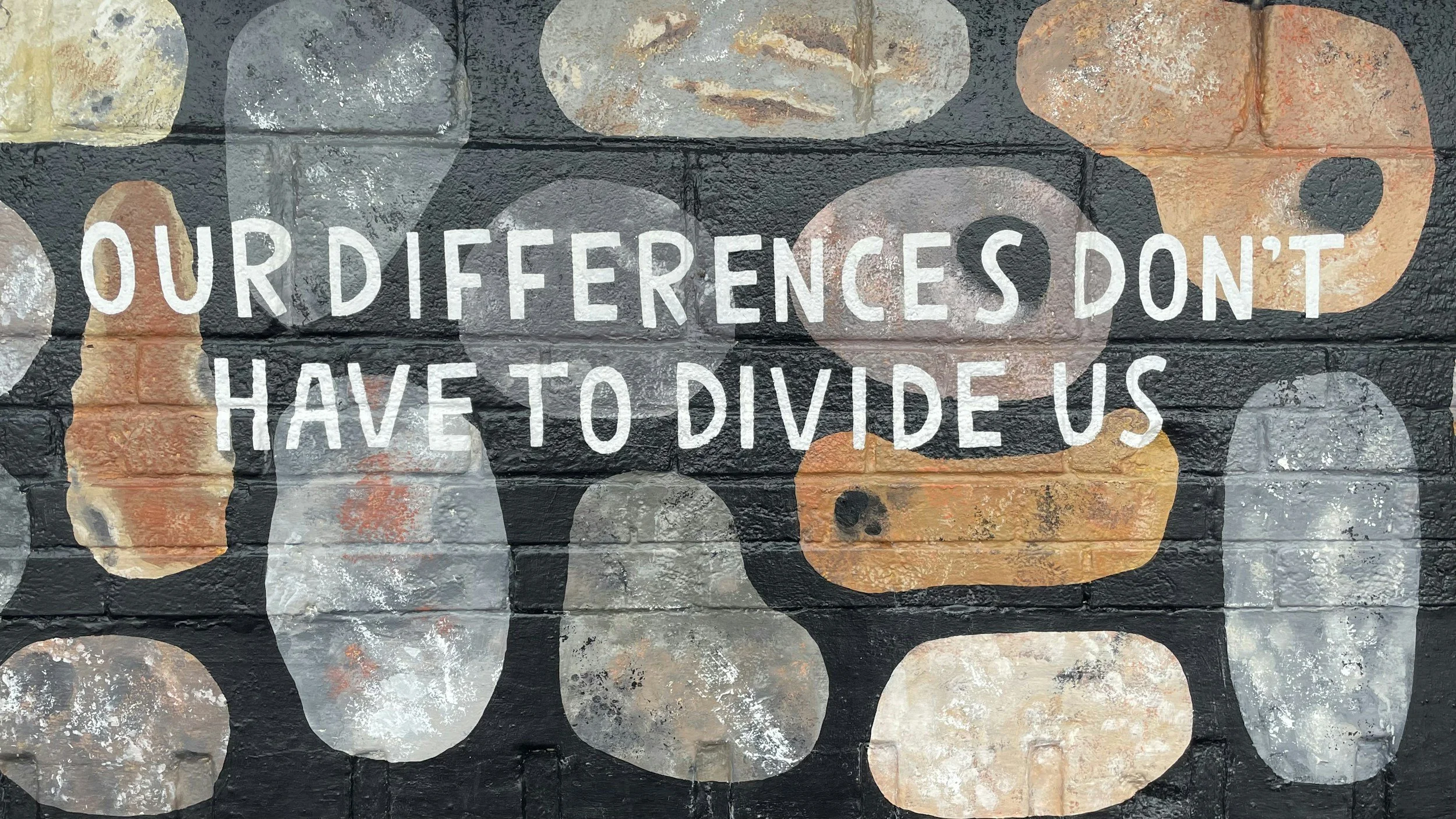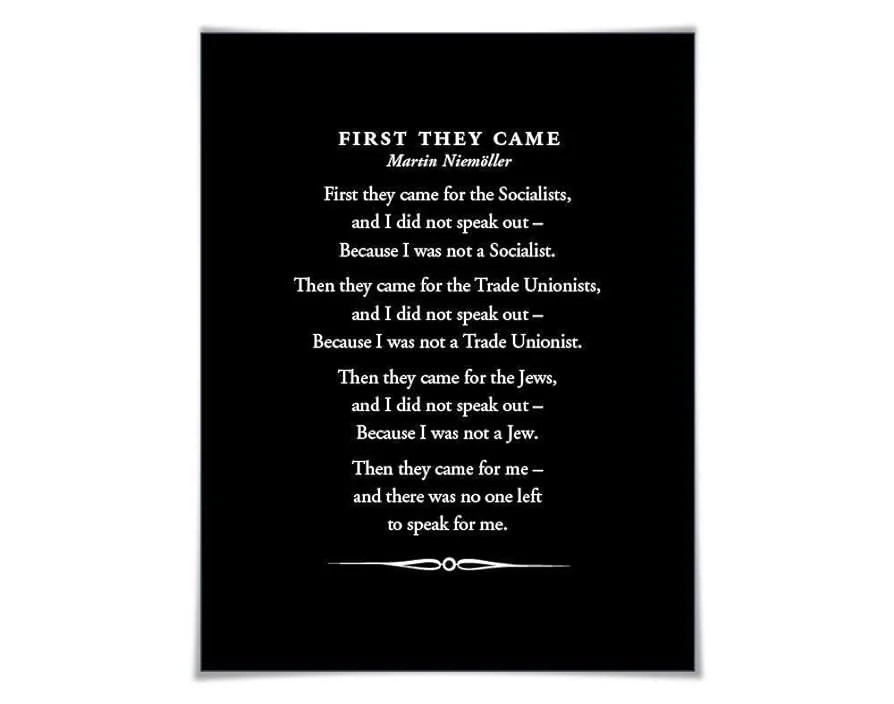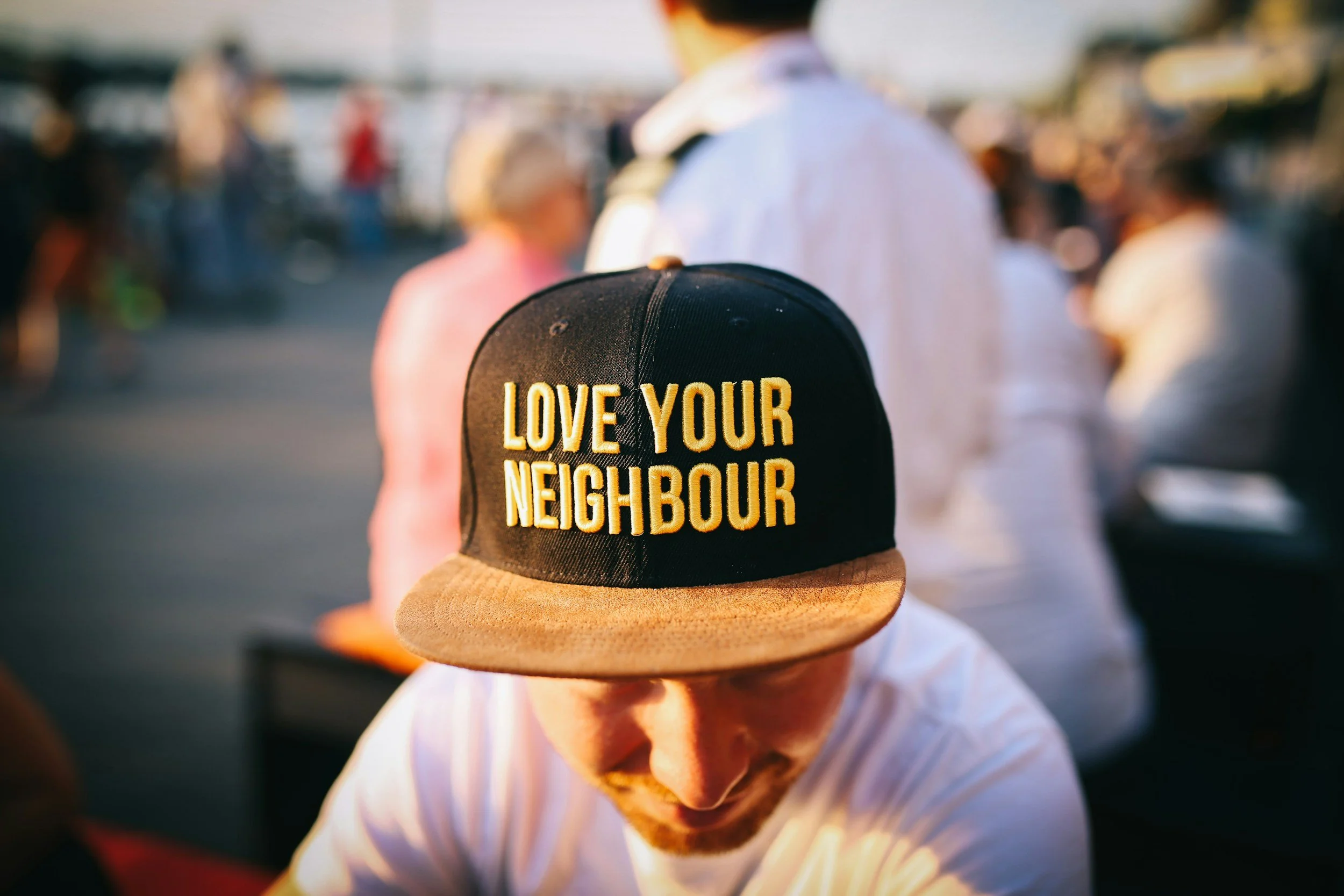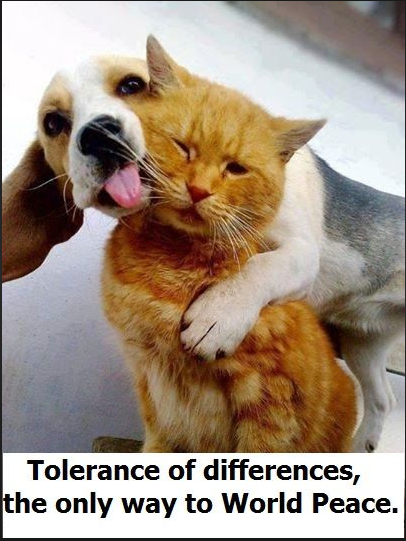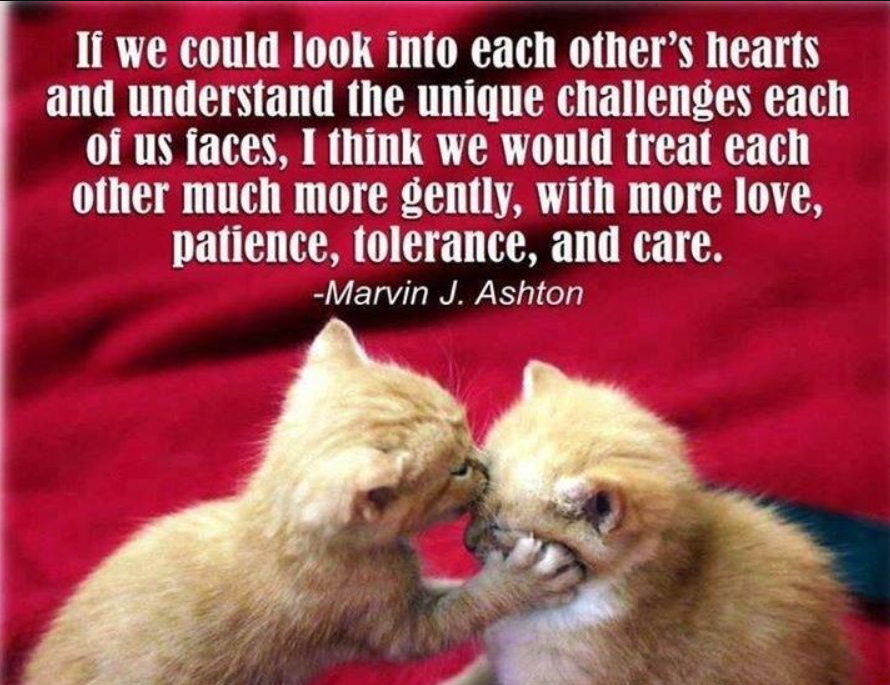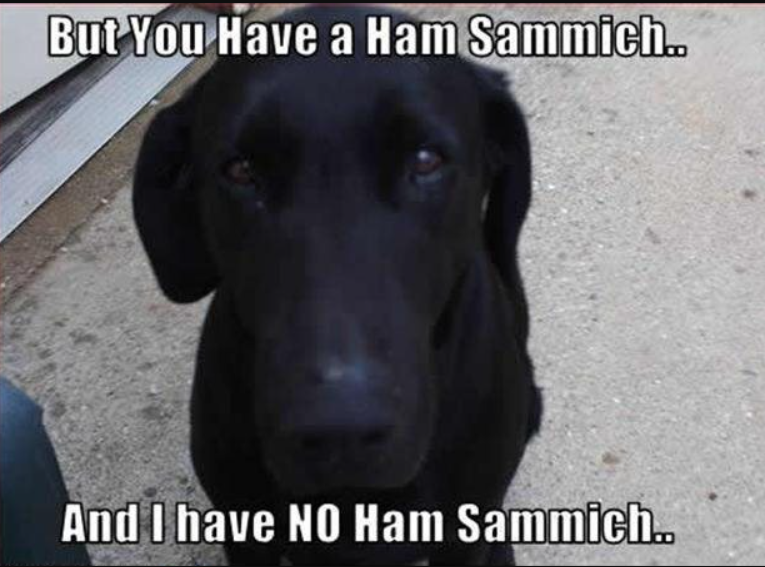Tolerance. Not cruelty.
"Give me your tired, your poor, Your huddled masses yearning to breathe free". - Emma Lazarus
Unlike the civil unrest of past decades, what’s happening today in Los Angeles—and across the country—is different. People are literally being kidnapped off the streets: gardeners, while mowing lawns, are assaulted by masked, unidentified agents. They are beaten, handcuffed, and taken away before they can speak or show ID. No due process. No explanation. No goodbyes. No humanity.
Meanwhile, some are gleefully celebrating the establishment of “Alligator Alcatraz”—a horrific detention center for many of these innocent, hardworking people. Not hardened criminals. It is sickening. Period.
How did America go from “Give me your tired, your poor, your huddled masses yearning to breathe free” to the blatant inhumanity we are witnessing today?
The Museum of Tolerance: My First Job, My Lifelong Lesson
My first job after graduating college was with a nonprofit public relations firm working on the Simon Wiesenthal Center account. Our mission: to raise $35 million (the equivalent of about $113 million today) to build what is now the Museum of Tolerance in Los Angeles. The museum explores the dynamics of bigotry and discrimination throughout history—many of which still persist today. It was a cause I embraced wholeheartedly.
In that role, I witnessed firsthand the horrors of the Holocaust and learned how one man led a nation to systematically exterminate 11 million people—scapegoated and murdered simply for being different. The ultimate expression of intolerance. It was unfathomable that human beings could harbor such hatred and comply with atrocities fueled by propaganda.
Even more disturbing is how echoes of that cruelty still reverberate in today’s world—eight decades later. Here in America, we’ve seen a disturbing rise in hate and intolerance, fueled largely by divisive rhetoric. Over the past four presidential election cycles, hate-driven incidents have increased significantly, according to The Leadership Conference Education Fund’s report, “Cause for Concern 2024: The State of Hate.” And we’re only halfway through 2025. We don’t need more data to know the trend is worsening.
“Tolerance implies no lack of commitment to one's own beliefs. Rather it is a mental attitude of understanding and appreciation of the differences in others.” - Kofi Annan
Personally, watching this cruelty unfold triggers me deeply—because I understand the consequences of unchecked hate and bigotry. I know many of you do too. We’ve seen this movie before. We don’t need to see it again.
We need to ask ourselves: How much of this inhumanity will we tolerate? Will we once again fall into the same unconscionable patterns of the past? Or will we choose to build tolerance for one another—and stop the cruelty?
(Enter EMPATHY Center Stage)
Thankfully, my parents instilled in me a curiosity about the world and a respect for others. Through friendships, professional experiences, and travel, I’ve met people of many cultures, religions, and life paths. By staying open to new perspectives, I developed tolerance. I learned to be mindful of those less fortunate and to have rachmones—the Yiddish word for compassion—for those in need.
What we need now is a tsunami of empathy to sweep across our country—and the world. We must learn how to tolerate differences and remember the teaching: “There but for the grace of God go I.”
Empathy Can Be Learned
We need to care for one another and strive to do what is right and kind. Although empathy is largely shaped by experience, it can be taught and cultivated through intentional effort. A few simple ways include:
Engaging with people from different backgrounds and actively working to overcome stereotypes
Asking questions and listening with curiosity—even if you don’t agree with someone’s perspective
Reading fiction, which opens new worlds and fosters deeper understanding of others’ lives
The ultimate proof that empathy can be learned is featured in a 2017 PBS piece titled “Reformed Racists: Is There Life After Hate for Former White Supremacists?” It tells the stories of former white supremacists who renounced their toxic beliefs after their hatred was directly challenged by the humanity of individuals they once vilified.
One particularly powerful example is Derek Black, who was raised in a deeply racist environment. Groomed to follow in his father’s footsteps as a white nationalist leader, Derek was an outspoken activist for hate—until someone offered him friendship and kindness. That simple act of human connection led him to question the ideology he had been taught.
Empathy opened the door to a more humane reality for him. Over time, he was able to disengage from the hate movement and now works to help others do the same.
Empathy in Action
Here’s an example of how I practice empathy:
When someone expresses support for “getting rid of all the immigrants, regardless of status,” and believes such cruelty is justified, I don’t argue. I show empathy toward them. I give them grace. And I ask myself: “Maybe they don’t know?”
Maybe they don’t know how these mass deportations are actually playing out. Maybe they don’t know that:
70% of those targeted and detained aren’t hardened criminals, but legal residents who have worked and paid taxes for decades
Families are being torn apart, with children witnessing parents taken away—or facing deportation themselves
There is no due process, no opportunity to plead a case—just sudden detention without cause
Agents often don’t show ID, and some impersonators are illegally kidnapping people, adding to the trauma
Detention conditions are inhumane: overcrowded rooms, little food or medical access, held for days
Entire communities are being terrorized—parks, schools, and neighborhoods feel unsafe
Millions of vital laborers—gardeners, farmworkers, hotel staff, hospital aides, restaurant workers—are now afraid to work, threatening their families’ survival and our entire economy
This is a slippery slope to scapegoating the next group
Maybe they truly don’t know. And if they do know, and still feel the same, then perhaps they lack empathy. Maybe they don’t realize what that says about them as human beings. Their beliefs, words, and actions reveal who they really are. Do they want to be perceived as cruel and heartless—or as kind and compassionate?
The choice is clear: We can continue accepting cruelty and hatred as our reality, or we can consciously choose empathy and understanding as our way forward. Which side of history will we stand on?
Empathy Is Not Weakness—It’s Humanity
Having empathy and tolerance doesn’t make you a “bleeding-heart liberal.” It makes you a decent human being. Each of us has the power to model empathy and kindness—starting in our own communities. That’s how we create a more unified country—and a better world.
Let’s become intolerant of cruelty, hatred, and meanness. Let’s choose humanity, always.
Let’s make tolerance go viral. ✊💛
###
As always, I will leave you with a few smiles. For great lessons on tolerance and empathy - we need to just look to the animals. 🐶😺💛 ✨😊
Don’t forget to opt-in for positivity!
(Please note: If you have already signed up with The Positive People Project and are not receiving emails, please check your Spam or Promotions folder.)
How could you not have empathy for this guy?
Stay positive my friends! Thanks for reading!
With love and laughter,
Annie @The Positive People Project. 🌞

